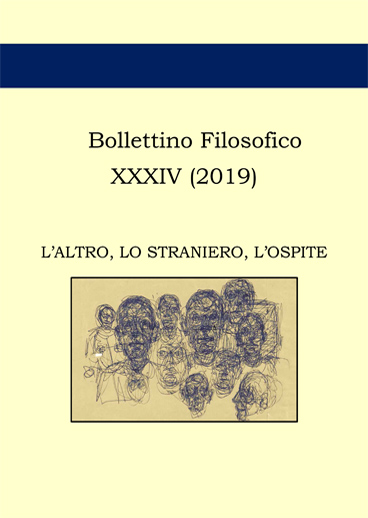Il diritto dell’ospitalità. Cittadini e stranieri nell’età globale
Abstract
One of the characteristics of the global age, alongside the creation of a world market and the free circulation of goods and information, is a new impulse for migration processes. Huge masses of migrants move on Earth along winding and risky escape routes, pushed to move away from war and poverty, in search of better conditions of existence. We need to go back to thinking about the ambiguous status of the foreigner, oscillating between the figure of the enemy (hostis) and that of the guest (hospes). In our time, the foreigner who asks for hospitality poses a challenge to Nation-States that cannot be evaded by mere rejection-policies. In the general decline of the State-form and its functions, an irremediable contradiction is revealed, which takes the form of a real “world civil war” between the principles of State-sovereignty and national citizenship and the supranational principle of the right to migrate (ius migrandi), as a fundamental human right, to which a universal right to hospitality and citizenship should correspond. This later right shall be payable beyond the Nation-States’ borders.
Keywords: Migrations, Foreigner, Guest, Hospitality, Nation-State
Downloads
Bollettino Filosofico pubblica in internet, ad accesso aperto, con licenza:
|
|
CCPL Creative Commons Attribution |
L'autore conserva il copyright sul suo contributo, consentendo tuttavia a chiunque "di riprodurre, distribuire, comunicare al pubblico, esporre in pubblico, rappresentare, eseguire e recitare l'opera", purché siano correttamente citati l'autore e il titolo della rivista. L’autore, al momento della proposta di pubblicazione, è inoltre tenuto a dichiarare che il contenuto e l’organizzazione dell’opera è originale e non compromette in alcun modo i diritti di terzi, né gli obblighi connessi alla salvaguardia di diritti morali ed economici di altri autori o di altri aventi diritto, sia per testi, immagini, foto, tabelle, sia per altre parti di cui il contributo può essere composto. L’autore dichiara altresì di essere a conoscenza delle sanzioni previste dal codice penale e dalle leggi speciali per l’ipotesi di falsità in atti ed uso di atti falsi, e che pertanto Bollettino Filosofico è esente da qualsiasi responsabilità di qualsivoglia natura, civile, amministrativa o penale, e sarà dall'autore tenuta indenne da qualsiasi richiesta o rivendicazione da parte di terzi.
